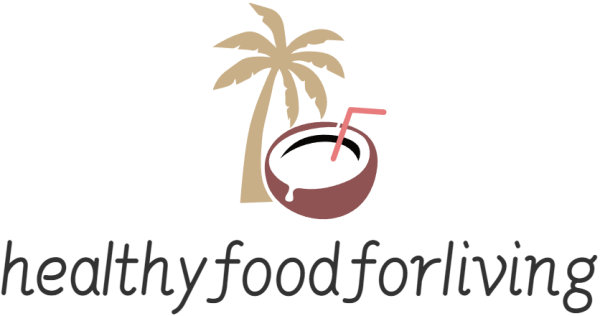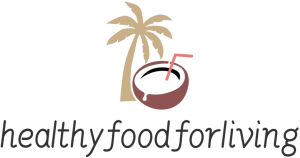Staying fit and healthy doesn’t have to come with a hefty price tag. Many people believe that eating nutritious, fitness-focused meals requires expensive ingredients or fancy supplements, but that’s far from the truth. In reality, there are plenty of ways to maintain a balanced, nutrient-dense diet without overspending. Whether you’re a dedicated athlete or simply someone trying to improve your health, understanding how to create fitness cuisine on a budget can make all the difference.
This guide will provide practical strategies and affordable recipes that can help you fuel your body efficiently without draining your wallet. By prioritizing smart shopping, meal planning, and affordable but nutrient-rich ingredients, you can eat well and achieve your fitness goals—no matter your budget.
The Basics of Fitness Nutrition on a Budget
Before diving into specific meal ideas and shopping tips, it’s important to understand the basics of fitness nutrition. A well-balanced diet that supports fitness should include three main macronutrients: carbohydrates, proteins, and fats. Each of these macronutrients serves a specific purpose in supporting energy, muscle growth, and overall performance.
- Carbohydrates: The body’s primary energy source, especially for active individuals. Carbs should come from complex sources such as whole grains, fruits, and vegetables, which provide long-lasting energy without causing blood sugar spikes.
- Proteins: Essential for muscle repair and growth. Protein can come from both animal and plant sources, and it’s important to get a variety of sources to ensure a full range of amino acids.
- Fats: Healthy fats are crucial for maintaining energy levels, hormone production, and overall cell function. Focus on unsaturated fats from sources like nuts, seeds, and olive oil.
The goal of fitness cuisine is to balance these macronutrients while staying within a reasonable budget. Fortunately, many affordable foods provide these nutrients without compromising on quality.
Smart Shopping Strategies
When it comes to eating well on a budget, shopping strategically is key. Here are some tips to help you get the most out of your grocery trips:
- Buy in Bulk: Purchasing staples like rice, beans, oats, and whole grains in bulk can save a significant amount of money over time. These ingredients are versatile, last a long time, and provide the complex carbs and proteins necessary for a fitness-friendly diet.
- Seasonal and Frozen Produce: Fresh fruits and vegetables can be pricey, especially if they’re out of season. Opt for seasonal produce when possible, and don’t overlook the frozen section—frozen fruits and veggies are just as nutritious as fresh and are often more affordable.
- Stick to Whole Foods: Processed foods are not only less nutritious, but they’re often more expensive. Sticking to whole, unprocessed ingredients like vegetables, grains, and lean proteins will stretch your budget while giving you more nutrients.
- Shop Sales and Use Coupons: Keep an eye on sales for staple items like chicken, fish, or plant-based proteins. Many grocery stores also offer coupons that can help you save on essentials. Planning meals around what’s on sale can help reduce your overall grocery bill.
- Choose Affordable Protein Sources: Meat and fish can be some of the most expensive items on a fitness diet, but there are plenty of budget-friendly protein alternatives. Consider plant-based proteins like lentils, beans, and tofu, which are often much cheaper than meat but still pack a protein punch.
- Meal Prep to Reduce Waste: One of the biggest sources of wasted money is spoiled food. By planning your meals and prepping ingredients in advance, you can avoid throwing away unused food and get the most out of every grocery trip.
Affordable, Fitness-Friendly Foods
Now that we’ve covered some shopping strategies, let’s look at some specific, budget-friendly foods that can fuel your fitness journey:
- Brown Rice: An inexpensive and versatile grain, brown rice is a great source of complex carbs that provide long-lasting energy. Use it as a base for stir-fries, salads, or as a side dish for lean proteins.
- Lentils: Packed with protein and fiber, lentils are one of the most affordable and nutritious legumes available. They can be used in soups, stews, salads, or even as a plant-based meat substitute in dishes like tacos or burgers.
- Eggs: One of the most budget-friendly sources of high-quality protein, eggs can be used in a variety of meals, from breakfast scrambles to post-workout snacks. They’re also rich in essential nutrients like vitamins B12 and D.
- Oats: Oats are not only affordable but also incredibly versatile. They can be used in everything from smoothies and overnight oats to healthy baked goods. Oats are an excellent source of complex carbs and fiber, making them perfect for pre-workout meals.
- Canned Tuna: A budget-friendly source of lean protein, canned tuna is an easy way to add protein to salads, sandwiches, or even stir-fries. Look for tuna packed in water for a lower-fat option.
- Peanut Butter: A great source of healthy fats and protein, peanut butter is both affordable and versatile. Use it in smoothies, on toast, or as a dip for fruits and veggies. Just be sure to choose natural peanut butter with no added sugars.
- Frozen Vegetables: As mentioned earlier, frozen vegetables are just as nutritious as fresh and often more affordable. Stock up on frozen broccoli, spinach, or mixed vegetables to easily add a dose of fiber and vitamins to any meal.
- Chickpeas: Another affordable plant-based protein, chickpeas can be used in a variety of dishes, from hummus to salads to stir-fries. They’re high in protein, fiber, and essential nutrients like iron and magnesium.
- Whole Wheat Pasta: Whole wheat pasta is a great source of complex carbs and fiber. It’s an affordable, long-lasting pantry staple that pairs well with a variety of sauces, lean proteins, and vegetables.
Sample Budget-Friendly Fitness Meals
To give you a sense of how to create fitness-friendly meals on a budget, here are a few sample meals that are easy to prepare and packed with nutrients:
- Breakfast: Overnight Oats with Peanut Butter and Banana
- Combine oats, almond milk, a tablespoon of peanut butter, and sliced banana in a jar.
- Refrigerate overnight and enjoy in the morning. This meal is high in fiber, complex carbs, and healthy fats, perfect for fueling a morning workout.
- Lunch: Lentil and Brown Rice Salad
- Cook a batch of brown rice and lentils, then toss with chopped vegetables like cucumbers, tomatoes, and spinach.
- Drizzle with olive oil and lemon juice for a simple, protein-packed lunch.
- Dinner: Chickpea Stir-Fry with Frozen Vegetables
- Sauté frozen vegetables with canned chickpeas, garlic, and soy sauce for a quick, high-protein dinner.
- Serve over brown rice or quinoa for a complete meal that’s rich in protein, fiber, and vitamins.
- Snack: Hard-Boiled Eggs with Carrot Sticks
- Hard-boiled eggs provide a portable, protein-rich snack, while carrot sticks add a satisfying crunch and a dose of vitamins.
- Post-Workout: Smoothie with Frozen Berries, Spinach, and Protein Powder
- Blend frozen berries, spinach, a scoop of protein powder, and almond milk for a refreshing, nutrient-packed post-workout smoothie.
The Power of Meal Prep
One of the most effective ways to save money while maintaining a fitness-focused diet is through meal prepping. By dedicating a few hours each week to preparing meals in bulk, you can ensure you have nutritious options on hand, reducing the temptation to eat out or opt for less healthy choices.
Start by choosing a few versatile ingredients, such as brown rice, lentils, or chickpeas, and preparing them in large batches. You can then mix and match these ingredients with different vegetables, sauces, and proteins to create a variety of meals throughout the week. Not only will this save you time and money, but it also ensures that you stay on track with your fitness goals.










































